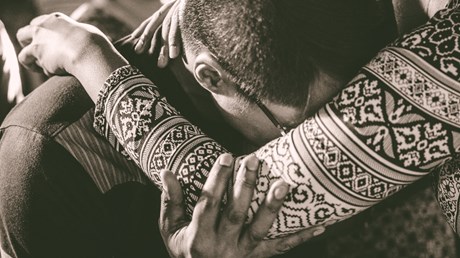Articulating moral consensus in a pluralistic country.

“We need to stand together with people of faith.”
A former Canadian federal cabinet minister received a warm round of applause from the studio audience when he flourished this line during a national radio broadcast.
Others who heard him were not so sure. The idea of a moral consensus based on a common religious framework has a long history in a North America, one dominated by Christians who recited the Lord’s Prayer in public schools and insisted on Sunday closings to facilitate Christian worship.
At least since the middle of the last century, this consensus widened (in sympathetic reaction to anti-Semitism both home and abroad that was evident around the time of World War II) to include Jews. “Judeo-Christian” thus emerged in the 1940s as an adjective its users hoped would describe everyone—except die-hard atheists.
“People of faith” more recently took over as an even more general and inclusive phrase that means “people who see the world mostly as we do, at least in broad terms.” With the religiously motivated violence of 9/11 fresh on our minds, however, and in the shadow of religiously motivated persecution around the world, surely we have learned anew not to treat “faith” as ever and always a good thing.
Bad Religion
Sociologist David Martin (among many others) has demonstrated that religion is rarely the main cause of violence. Land, wealth, security, prestige, and vengeance are the perennial motives for war. Yet religion has frequently been deployed as a validation, fuel, and rewarder of violence on the grand scale.
As any friendly neighborhood atheist also will gladly tell you, religion has been used to legitimize sexual abuse, justify financial scams, …
Source: Christianity Today Most Read